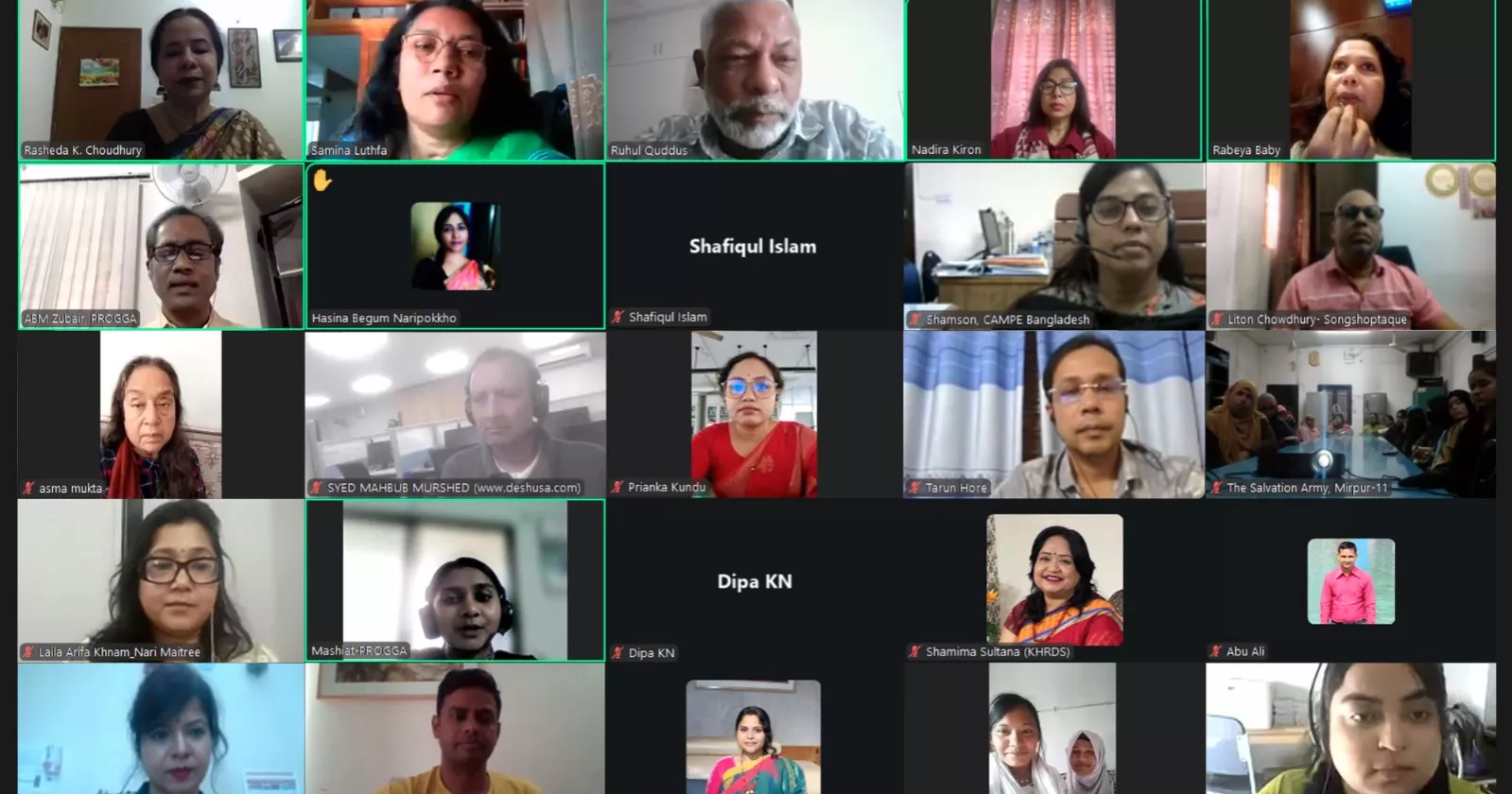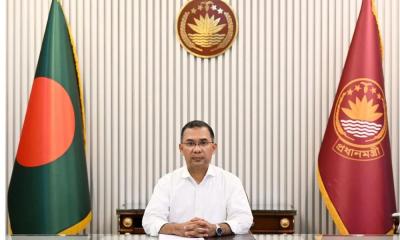Speakers at a webinar on Tuesday said a strong birth and death registration law is particularly important for safeguarding women’s fundamental rights including access to education, healthcare, social protection and justice.
The webinar titled “Stronger Registration Laws to Protect Women’s Rights,” was organised by research and advocacy organization PROGGA (Knowledge for Progress) with support from Global Health Advocacy Incubator (GHAI), in observance of the International Day for the Elimination of Violence Against Women.
The theme of this year is “UNiTE to End Digital Violence against Women and Girls.”
Although the government of Bangladesh has committed to achieving universal birth and death registration by 2030, loopholes in the existing law act as a major obstacle to progress, they said.
Speakers said lack of birth registration makes it difficult to prove girls’ ages, putting them at increased risk of child marriage, which leads to higher levels of physical and emotional violence.
Early marriage also exposes adolescent girls to severe maternal health risks and higher maternal mortality.
Rasheda K. Choudhury, Executive Director of Campaign for Popular Education (CAMPE) and former Adviser to a Caretaker Government, said, “Gender disparities in birth and death registration render women invisible. To ensure every woman’s identity and rights, it is crucial to strengthen the Birth and Death Registration Act, 2004 through amendment.”
Dr. Samina Luthfa, Professor of Sociology Department at the University of Dhaka, said , “We must ensure birth and death registration for all women to protect rights and dignity of women in both personal and state lives.”
Muhammad Ruhul Quddus, Bangladesh Country Lead of GHAI, said, “Introducing hospital-based birth and death registration can bring every woman under the registration system. This will accelerate the achievement of SDG 16.9, which aims to provide legal identity for all.”
Currently, Bangladesh’s birth registration rate stands at only 50%, and death registration at 47%, far below regional and global averages.
Journalists, civil society representatives and subject experts also joined the event.
The webinar was presided over by ABM Zubair, Executive Director of PROGGA, and moderated by Coordinator Mashiat Abedin, who also delivered the keynote presentation.
















-20260303080739.webp)











-20260225072312.webp)



